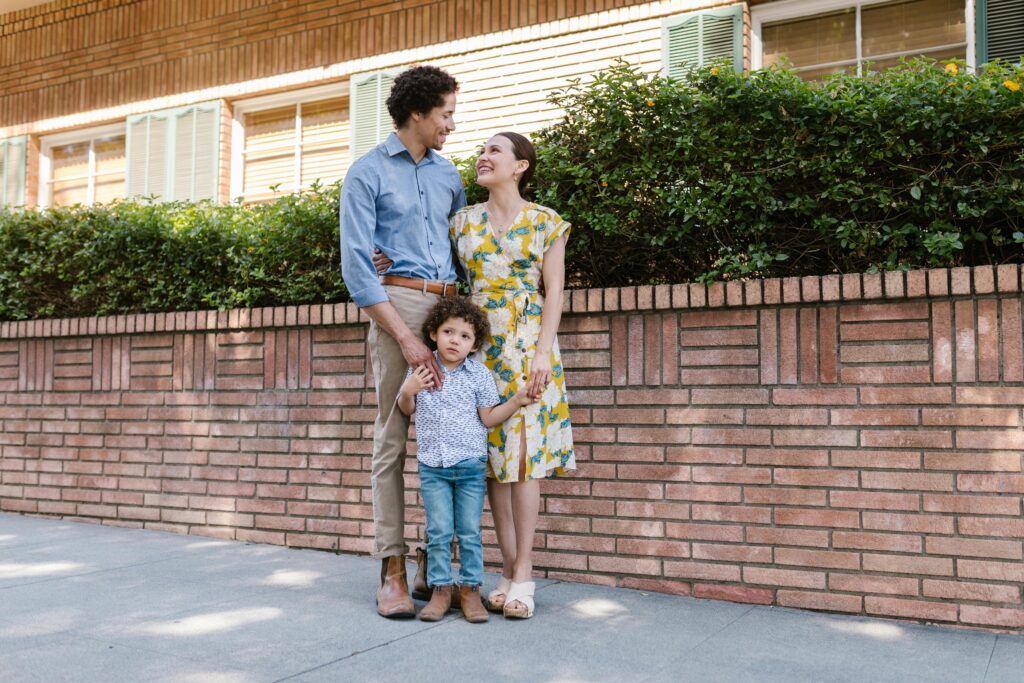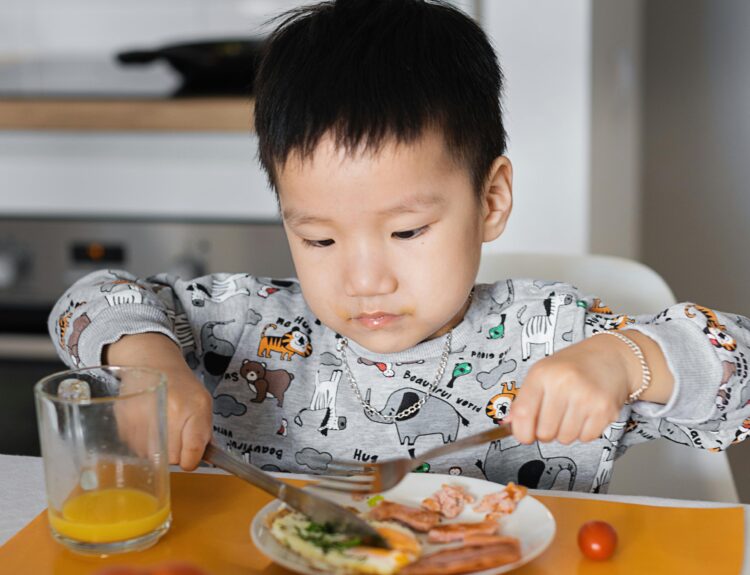In the hustle and bustle of modern life, where days pass by in a blur of tasks, notifications, and deadlines, staying connected as a family takes intention. As a mother, I’ve come to realize that true closeness doesn’t come from grand gestures or extravagant outings. It grows from the small, consistent moments we share, week after week.
These little rituals—those ordinary things we do on a regular basis—become the heartbeat of our family. They create structure, security, and the kind of memories that linger for years. In this blog, I want to share the weekly family rituals that keep our bond strong and unshakable, even in the face of everyday chaos.

Sunday Pancake Breakfasts
Sunday morning is sacred in our home. Not in a formal way, but in a way that centers around the kitchen, warm pancakes, and togetherness. No alarms, no rush. We wake up slowly and head to the kitchen as a team. My son loves to help stir the batter, even if it means a little mess on the counter. Sometimes we add bananas or blueberries, sometimes we stick with the classic recipe. It’s never about perfection—it’s about the process.
The kitchen fills with the smell of syrup, sizzling butter, and fresh fruit. The table is set, and for that morning, we are fully present. We sit together, talk about the week ahead, and enjoy a meal that feels special simply because we made it together.
This ritual may seem simple, but it sets the tone for a peaceful Sunday and reminds us that family moments don’t have to be elaborate to be meaningful. They just have to be consistent.
Family Game Night Every Wednesday
Midweek can be draining for everyone. There’s work, school, responsibilities, and sometimes, stress. That’s exactly why Wednesday evening is reserved for family game night. It’s something we all look forward to—a much-needed pause in the middle of a busy week.
We rotate between different games. Sometimes it’s a classic board game like Ludo, Scrabble, or Monopoly. Other times we just play card games or do a few rounds of charades. What matters most isn’t who wins or loses but the time spent laughing, teasing, strategizing, and even the occasional dramatic “I was so close to winning!” moment.
What I love most about this ritual is how it brings out everyone’s personalities. We all get to be a little silly, a little competitive, and a lot connected. It’s a reminder that joy lives in the moments we choose to make fun a priority.

Friday Night Movie and Floor Picnic
Fridays are for winding down and celebrating the end of a long week. Instead of sitting around the dinner table, we spread out a blanket on the floor in the living room, turn off the lights, and bring our dinner there. Some nights it’s homemade snacks. Other times we treat ourselves to a pizza or a big bowl of popcorn and fruit.
The TV becomes our little theater as we vote on a movie. Some weeks it’s an animated film. Other times it’s a family-friendly comedy or a feel-good classic. My son always brings his favorite pillow, and we snuggle up, grateful to be in each other’s company.
What makes this ritual so special is the shift in atmosphere. It breaks the routine in the most comforting way and helps us begin the weekend with warmth, connection, and the kind of calm that only family time can bring.
Saturday Outdoor Time
Spending time outdoors has become a cherished ritual for us. On Saturdays, we make it a point to go outside—whether it’s a visit to the park, a walk around the neighborhood, a bike ride, or even just tending to plants on our balcony or garden.
This ritual is about more than just physical activity. It gives us a chance to disconnect from screens and connect with each other in a natural, unpressured environment. We often find ourselves having the most open conversations during these walks. Nature has a way of softening us, of allowing space for both silence and meaningful dialogue.
For children, this outdoor time is also a source of learning, curiosity, and freedom. And for us parents, it’s a reminder to slow down and enjoy the world beyond the four walls of our daily routine.

Nightly Gratitude Moments Before Bed
Every night before bed, we take a few minutes to share one thing we’re thankful for. It could be something small, like “I liked the lunch we had today,” or something deeply emotional like “I felt really loved when we played together.” Sometimes my son surprises me with his thoughtful answers that show how deeply he’s observing the world around him.
This ritual may only take a few minutes, but its impact runs deep. It fosters emotional intelligence, mindfulness, and a positive mindset. It’s a moment of stillness that ends our day on a kind note, helping us all sleep a little more peacefully.
What I treasure most is how this habit has helped us be more appreciative of one another. It teaches us to look for good, even on difficult days, and to value the ordinary joys of life.
Weekly Chore Time—Together
Chores are not usually associated with fun or family bonding, but we’ve turned them into a weekly ritual that feels more like a team activity than a task list. Once a week—usually Saturday morning—we put on music, assign tasks, and get to work cleaning and tidying up.
My son might be responsible for collecting toys, helping dust low surfaces, or organizing his books. I take care of the kitchen and laundry. We cheer each other on and dance around with cleaning supplies, turning the whole thing into a lighthearted event.
This ritual teaches responsibility and shows that maintaining a home is a shared effort. It also helps reduce the feeling of overwhelm, since things don’t pile up as much. But more importantly, it reinforces the idea that we support each other and take pride in our space.

Sunday Planning and Family Check-In
As the weekend draws to a close, we take time on Sunday evening to sit down and plan the week ahead. This is one of the most valuable rituals we’ve developed. We go over what’s coming up—appointments, school assignments, meals, and any special activities. Everyone gets a say.
This is also when we check in emotionally. We ask questions like, “How are you feeling about school this week?” or “Is there anything you need help with?” It creates a safe, calm space for honest conversations and emotional expression.
The goal is not just to stay organized, but to stay connected. It helps prevent misunderstandings and ensures that every family member feels seen, supported, and prepared for the week ahead.
Why Weekly Rituals Matter More Than We Think
In a world filled with endless distractions and a constant rush to do more, weekly rituals help us slow down and focus on what truly matters—each other. They provide a rhythm to our lives that children find comforting and adults find grounding.
These rituals don’t need to be expensive or time-consuming. What matters most is the intention behind them. Children may not remember every toy or outing, but they will remember the way you made Sunday pancakes together or how you watched movies on the floor with cozy blankets.
As a mother, I have seen the impact of these rituals firsthand. They have made our family more open, more communicative, and more joyful. They give us moments to look forward to and a foundation of love to rely on.

How to Start Your Own Family Rituals
If you’re inspired to begin your own weekly rituals, here are a few tips:
Start small. Choose one ritual that fits naturally into your current schedule. It doesn’t have to be big—just consistent.
Make it meaningful. Focus on what matters most to your family. Whether that’s storytelling, cooking, praying, or taking walks—let your values guide your rituals.
Be flexible. Life happens. If you miss a ritual one week, don’t feel guilty. Just pick it back up again when you can. The beauty of rituals is in the return.
Include everyone. Let your children or partner have a say in choosing and shaping the rituals. This increases their sense of ownership and excitement.
Keep it simple. Some of the best rituals are also the easiest to maintain. They don’t need to be fancy—they just need to be full of presence and love.
Final Thoughts
Our weekly family rituals are not just habits. They are love in motion, gently woven into the fabric of our days. They remind us to pause, to listen, and to enjoy the people we love most.
No matter how busy life gets, these small traditions give us something to hold onto. They remind us who we are, and more importantly, who we are to each other.
What are some rituals that help you stay close to your family? I’d love to hear your ideas and stories—feel free to share in the comments below.

Frequently Asked Questions (FAQ)
1. Why are family rituals important?
Family rituals are important because they create a sense of stability, belonging, and connection. Children thrive on routine and familiarity, and regular family rituals help foster emotional security. For adults, they offer intentional time to bond, communicate, and share joy outside of everyday responsibilities.
2. How do I start creating family rituals if we have a busy schedule?
Start small. Choose one simple activity each week that fits easily into your existing routine, like a Sunday breakfast or a short evening walk. Consistency is more important than length or complexity. As your family adjusts, you can build in more rituals over time.
3. What if my children lose interest in the rituals?
Children’s interests change, and that’s okay. Try to involve them in choosing or adjusting the rituals. Keep things flexible and fun. If a certain activity starts to feel stale, modify it or introduce a new element to keep it engaging.
4. Are rituals only for families with young children?
No, rituals are valuable for families of all ages. Teenagers and even adult children benefit from regular, meaningful time with family. The type of ritual may evolve with age, but the emotional connection it fosters remains equally important.
5. What’s the difference between a routine and a ritual?
A routine is something you have to do (like brushing teeth or doing homework), while a ritual is something you choose to do together with intention and meaning. Rituals often involve emotional bonding and are looked forward to, whereas routines are more functional.
6. How do family rituals benefit children emotionally?
Rituals help children feel secure, valued, and connected. They give children predictable moments of closeness, help reduce anxiety, and strengthen parent-child communication. Over time, these rituals become cherished memories and important emotional touchpoints.
7. Can single parents or small families also create rituals?
Absolutely. Family rituals are not about how many people are involved but about how meaningful the experience is. A single parent and child can enjoy a movie night, a weekend outing, or bedtime storytelling—anything that brings consistent joy and closeness.








